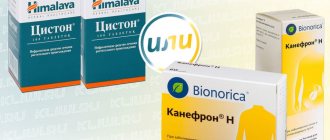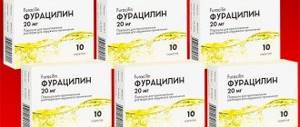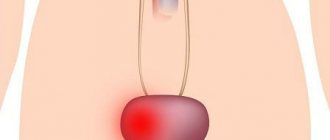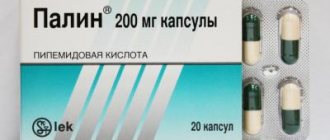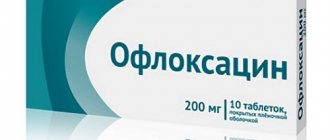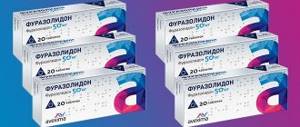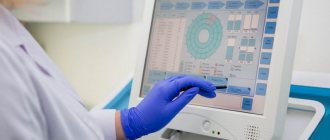Cystitis powder is one of the commonly used forms of medicine in the treatment of this disease. Many different drugs are available in this form. As a rule, these are antibiotics. Less commonly, sulfonamide agents or uroantiseptics can be found in powder form. Currently, for cystitis, doctors more often prescribe drugs in the form of tablets. But powders are still popular. Compared to tablets, the powder is absorbed faster and does not irritate the mucous membranes of the stomach and intestines. The most popular of these drugs will be discussed below.
What is cystitis powder?
Most of the powdered form of the medicine is white dust or small white crystals, which contain a loading dose of the antibiotic. If it can be used orally, the packet usually contains not only the antibiotic, but also a sweetener or flavoring agent. Using this form of the drug is very simple, you need to dilute the cystitis powder in a large amount of warm, clean water and drink. If the powder is used for injection, then it must be diluted with saline and injected into soft tissues.
Efficiency
In the treatment of urinary tract infections, medications are used that can prevent the growth of pathogenic microorganisms and normalize the excretory function of the kidneys. At the same time, the medicine must be effective and safe.
Powder for cystitis combines these qualities well. Its absorption is faster compared to tablets, and it does not cause irritation to the mucous membrane of the digestive tract.
Doctors often prescribe powder for cystitis.
Ease of use is important. Powder against cystitis is more convenient to use compared to injections. It is enough to dissolve it in water and can be used at home.
The powder should be taken with plenty of water, this helps flush the urinary tract and accelerate the elimination of pathogenic microorganisms and their waste products.
Despite the advantages, powders can only be used after an examination and on the recommendation of a doctor.
From chronic
Doctors prescribe antibiotics for chronic cystitis after receiving laboratory test results. For a more effective effect, you need to know the nature of the pathogen and the degree of its sensitivity to this agent. Any medications can be taken only after examination and on the recommendation of a doctor.
From acute
In case of acute cystitis, treatment must be started immediately (before culture results are obtained). It is necessary to reduce pain, eliminate frequent urge to urinate, prevent the activity of pathogenic microflora and prevent the disease from becoming chronic.
Antibiotics are used to destroy the infectious agent. Medicines in powder form can be used for oral administration or for the preparation of injection solutions.
In case of acute cystitis, treatment must be started immediately (before culture results are obtained).
What are the pros and cons of such antibiotics?
To explain the positive and negative aspects of this form of the drug, you need to briefly talk about how the antibiotic works.
The active chemical element enters the blood through the gastrointestinal tract, soft tissues (for injections) or other routes and begins to accumulate in the body. When the concentration reaches therapeutic levels, it means that antibiotics have accumulated in sufficient quantities in the body and begin to act. A process develops that depends on the type of antibiotic; most often in bacteria, under the influence of the drug, the cell wall is destroyed or the division mechanism is blocked.
The advantages that this particular powder for cystitis has are that the therapeutic dose accumulates very quickly. If tablets take an average of 6-12 hours, then the powder takes 2, injections even faster. This is due to the form - the substance quickly enters the body, while the tablets “dissolve” slowly.
The disadvantages of such a drug have the same roots as the advantages: antibiotics create a greater burden on the stomach, liver and kidneys, as they act faster and stronger.
When is a powder treatment option for cystitis prescribed?
A doctor may prescribe powder for cystitis in a number of cases:
- Some antibiotics only exist in powder form.
- The disease has progressed and treatment must be started quickly.
- The use of tablets is sometimes impossible due to various reasons, for example, when the throat is deformed.
If a specialist has prescribed antibiotics in powder form, you should not play family doctor and change the medicine to another or drink it in some special way. A patient acting independently risks serious complications.
What are the advantages of powders over tablets?
In ancient times, with artisanal pharmaceutical production, tablets could not be made at all. Medicines were prepared manually in the form of powders, pills, alcohol tinctures, and aqueous solutions. The powders were packaged in waxed paper bags. Typically, the amount of the drug in one serving corresponded to a single dose.
The pills were the same powder, but placed in a gelatin capsule. Such forms were used in the treatment of all diseases, including cystitis.
The current level of the pharmaceutical industry is able to produce medications for oral administration (oral), injections, and suppositories. Technologies have been developed for targeted delivery of the desired drug to the diseased organ, a layer-by-layer structure of capsules to protect the active substance from the effects of gastric juice and digestive tract enzymes.
But powders remain on sale. What is so good about this ancient form of medicine?
Benefits include:
- ease of manufacture, correspondingly lower price of the drug;
- the ability to introduce different components into the composition;
- good absorption (in medicine this property is called bioavailability), since the finer the powder, the easier it is distributed over the surface of the intestine;
- since the powders must be dissolved or washed down with water, the amount of liquid drunk increases, and this enhances the “flushing” effect for the urinary tract;
- convenience for the manufacturer in transportation and storage (nothing will break), although the shelf life is much shorter than that of tablets; powders are affected by environmental conditions (humidity, temperature).
Powdered medicine is not easy to take unchanged due to bitterness.
Disadvantages include:
- unpleasant taste of some components;
- irritation of the gastric mucosa;
- inconvenience of taking it at work; not everyone has the means to dilute the powder with water (which means the substances are more suitable for no more than twice daily use at home).
All of the above problems concern us as consumers. Since the economic role in the family is mainly performed by women, and mainly women suffer from cystitis, the price plays an important role in purchasing medicine. If patients agree to buy an expensive medicine, then all that remains is to solve medical problems.
You can learn about existing drug options for the treatment of cystitis in this article.
The most popular powdered medicines
Below are short reviews of the most popular powdered antibiotics
Monural
Monural powder contains fosfomycin, which effectively counteracts many pathogens. It is practical - treatment is reduced to using one sachet per day. Can be used for women during pregnancy and lactation. The downside is the significant price.
Albucid
Albucid contains sulfacedamide, which acts on both gram-positive and gram-negative bacteria. It is very effective, but it should be taken only as prescribed by a doctor, as there are contraindications and noticeable side effects.
Cystopurine
Once this antibiotic was often offered for cystitis in pharmacies, but now it is practically not found due to its ineffectiveness compared to new drugs (for example, fosfomycin).
Furasol
The active ingredient is potassium furazidine. Furasol (powder) is an antimicrobial and is usually prescribed for infections of the oral cavity and oropharynx, but sometimes it is effective in acute cystitis. Due to its specificity, it is extremely undesirable to use this medicine without a doctor’s prescription.
Cefazolin
A broad-spectrum antibiotic that acts in a similar manner to penicillins. What is unusual about cefazolin is that it cannot be taken orally, although it often comes in powder form. The reason is simple - it is not absorbed through the gastrointestinal tract. Cefazolin powder is suitable only for intramuscular solution.
Sulfacyl
Sulfacyl sodium is a uroantiseptic, which is usually prescribed in combination with other medications against cystitis. Low toxicity, the most dangerous side effect is allergies.
Ampicillin
Regarding drugs for cystitis, Yandex queries are dominated by “ampicillin powder for solution.” This is explained by the fact that ampicillin is one of the most accessible and widely used antibiotics. Its powder form also needs to be diluted, drawn into a syringe and injected into soft tissues. But when treating, it is worth considering that some types of bacteria are completely immune to ampicillin.
Fosfomycin
Fosfomycin is the international nonproprietary name for Monural and its analogues. fosfomycin contains fosfomycin trometamol, a broad-spectrum antibiotic that is more effective than ampicillin. It is used in cases of infections without complications and recurrent infections, is quickly absorbed from the gastrointestinal tract and is relatively safe.
Application
Medicines in the form of powders for the complex treatment of cystitis in most cases are antibiotics.
There are medications that require one-time use. If there is no positive result, the dose can be repeated after 24 hours. Drugs in the form of powders for the treatment of bladder inflammation can quickly enter the bloodstream; their active substances are concentrated in the urinary organs and destroy pathogenic microorganisms.
Each medicine is accompanied by instructions for use of the drug, however, the dosage and features of administration are determined by the doctor based on the examination data.
Each medicine is accompanied by instructions for use of the drug, however, the dosage and features of administration are determined by the doctor based on the examination data.
During pregnancy and lactation
During pregnancy, the doctor may prescribe an antibiotic if it is necessary for the mother and will not harm the fetus. It is undesirable to use medications in the early stages.
When breastfeeding, if it is impossible to do without the use of antibiotics, it is recommended to use formula to feed the baby during the treatment period, and express milk.
When treating cystitis during pregnancy and lactation, it is necessary to prescribe drugs that do not pose a danger to the child.
For children
Drugs for the treatment of inflammatory processes in the urinary system in children are prescribed taking into account the form and severity of the disease, and the patient’s age.
The need to use powdered medications to treat cystitis is determined by the doctor.
He also calculates the dose, number of doses and course duration.
special instructions
Drugs for the treatment of cystitis should be prescribed by a doctor to prevent allergies, resistance of the disease to treatment and its complications. Since solutions from powders are divided into oral and intramuscular, before use you should carefully read the instructions to prevent incorrect use.
Contraindications and side effects
Each of the powders has its own sets of both. Some can be used to treat pregnant and lactating women, but some cannot. The same applies to children, allergy sufferers and drivers. Using a medicine that is not suitable for a given patient can result in mild side effects such as skin rash, miscarriage or death. Therefore, before using any antibiotics, you should talk to your doctor and get a prescription or recommendation from him.
Powdered medications are an effective remedy for cystitis. There are powders for drinking and powders for injection, depending on the type of antibiotic. High effectiveness comes at the cost of high stress on the body and the presence of side effects, so you should talk to your doctor before using this treatment.
